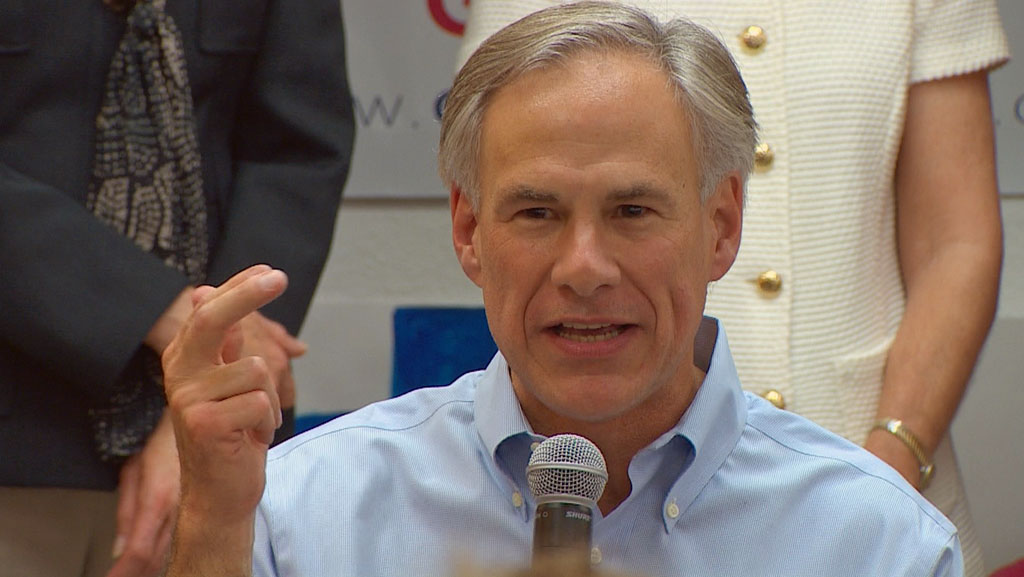AUSTIN Launching his campaign for governor, Texas Attorney General Greg Abbott made a bold claim.
"I fought for the constitutional principal of federalism, suing an overreaching federal government 27 times," the Republican told supporters at his campaign launch in San Antonio earlier this month. "I didn't invent that phrase, 'Don't Mess with Texas,' but I have applied it more than anyone else ever has."
According to documentation provided to KVUE Tuesday by the Texas Attorney General's Office, Abbott has filed a total of 28 lawsuits against federal agencies under the Obama administration as of July.
Since his election to the office in 2002, Abbott has also filed three lawsuits against the administration of President George W. Bush.
Of the lawsuits filed against the current president, 18 are still pending. His most recent is a lawsuit filed this month pitting Texas and eleven other states against the Environmental Protection Agency, seeking documents "between envrionmental groups and EPA officials regarding implementation of the Clean Air Act's Regional Haze program."
A general analysis of the lawsuits shows Abbott on the losing end of eight cases, including five against the EPA.
Abbott lost three cases against the Department of Health and Human Services, one them being the multi-state constitutional challenge to the Patient Protection and Affordable Care Act.
Those losses are not all necessarily final, as a number of the lawsuits are still pending an appeal, or are eligible to be appealed.
Meanwhile, Abbott has secured either a definitive win or a largely favorable outcome in nine cases.
For example: A 2010 lawsuit against the Department of Education over federal education funds focused on a spending bill amendment by Rep. Lloyd Doggett (D-Austin) that made $832 million in federal funding for Texas schools contingent upon state lawmakers maintaining current school funding levels amid across-the-board budget cuts. The lawsuit was dropped after the amendment was repealed by Congress.
In another instance, a lawsuit against the Obama administration over the Gulf of Mexico drilling moratorium following the Deepwater Horizon oil rig disaster was dismissed after the moratorium was dropped.
Additionally, Abbott scored four wins against the EPA and one against the Federal Energy Regulatory Commission on the behalf of the Texas Railroad Commission.
Yet Abbott's most often-touted case on the campaign trail featured the attorney general not on offense, but on defense.
"When the Ten Commandments monument on the Texas Capitol grounds came under attack, I fought for that monument all the way to the United States Supreme Court, and we won," Abbott has repeated during stops on his week-long campaign tour through Texas.
In 2002, Austin lawyer Thomas Van Orden filed a lawsuit claiming the monument violated the constitutional separation of church and state. Abbott argued the case before the U.S. Supreme Court, which ruled in 2005 by a 5-4 majority that the monument could stay.
"Texans and the nation won both the battle and the war," Abbott told media following the high court's decision in June of that year.
What about more recently?
"When our Second Amendment rights were threatened, I led a team of states to defend firearm freedom all the way to the United States Supreme Court, and we won," Abbott has said.
Abbott's office announced in March 2010 the attorney general had filed a brief "on behalf of 38 state attorneys general" and attended oral arguments in the case of McDonald v. Chicago concerning a ban on handguns in the city. The high court eventually ruled the ban in violation of the Second Amendment, incorporated by the Fourteenth Amendment to apply to states as well as the federal government.
"The very day the president signed 'Obamacare' into law, I took him to court to fight for our constitutional rights," Abbott has said.
Texas was one of 13 plaintiffs in a lawsuit challenging the constitutionality of the Patient Protection and Affordable Care Act. In June 2012, the high court upheld the majority of the health care law.
While the plaintiffs lost their bid to strike down the law, the court determined the decision of whether to expand Medicaid under the law would be left to each state.
In June of this year, Abbott won a challenge over a part of the 1965 Voting Rights Act that subjected Texas and other states and political subdivisions with a history of voter discrimination to extra scrutiny when changing election laws.
"Today represents the first chapter of the new book that's going to be written with regard to the Voting Rights Act," Abbott told media after oral arguments before the U.S. Supreme Court in January 2012.
The case Texas v. Holder was eventually remanded back to the district court level after the high court voted to strike down Section 4 of the VRA in a similar case, Shelby County v. Holder.
The decision let Texas move ahead with voting maps and voter ID laws that had been deemed discriminatory by federal judges, and effectively neutered the provision under which Texas and other previously covered jurisdictions had been required to obtain "preclearance" by the U.S. Department of Justice before making any changes to election laws.
Altogether it's a resume key to Abbott's anti-Washington message, which he has summed up this way: "I go into the office, I sue the federal government, and then I go home."
His next argument will be not in defense of Texas' laws, but for his vision for the future of Texas, and this time voters will be the judge.


